USB-Blaster Download Cable User Guide
Subscribe
Send Feedback
UG-USB81204
2015.08.20
101 Innovation Drive
San Jose, CA 95134
www.altera.com
�
TOC-2
Contents
Introduction to USB-Blaster Download Cable...................................................1-1
USB-Blaster Revision...................................................................................................................................1-1
Supported Devices and Host Systems.......................................................................................................1-1
Specifications for USB-Blaster Download Cable................................................2-1
Block Diagram and Dimension..................................................................................................................2-1
Cable-to-Board Connection....................................................................................................................... 2-2
Pin Description.............................................................................................................................................2-2
Operating Conditions..................................................................................................................................2-3
Power Requirements....................................................................................................................................2-5
RoHS Compliance........................................................................................................................................2-6
Using the USB-Blaster Download Cable.............................................................3-1
Installing the USB-Blaster Driver on Windows.......................................................................................3-1
Installing the USB-Blaster Driver on Linux............................................................................................. 3-1
Installing on Red Hat Enterprise 4 or Earlier Versions..............................................................3-2
Installing on Red Hat Enterprise 5................................................................................................ 3-2
Setting up the USB-Blaster Hardware in the Quartus II Software........................................................3-2
Connecting the USB-Blaster Download Cable to the Board................................................................. 3-3
Revision History for USB-Blaster Download Cable User Guide....................... 4-1
Altera Corporation
�
Introduction to USB-Blaster Download Cable 1
2015.08.20
UG-USB81204
Subscribe
Send Feedback
The USB-Blaster™ download cable interfaces a USB port on a host computer to an Altera® FPGA
mounted on a printed circuit board. The cable sends configuration data from the host computer to a
standard 10-pin header connected to the FPGA. You can use the USB-Blaster download cable to
iteratively download configuration data to a system during prototyping or to program data into the
system during production.
USB-Blaster Revision
Table 1-1: USB-Blaster Revision
Revision
Rev. A
Rev. B
Indicator
Ribbon cable. No
revision marking on the
casing.
"Rev. B" on the casing.
Rev. C
"Rev. C" on the casing.
Description
RoHS Compliant
10-pin female connector that is connected
to the USB-Blaster through a ribbon cable.
10-pin female connector that is connected
to the USB-Blaster through a flexible PCB
cable.
10-pin female connector that is connected
to the USB-Blaster through a flexible PCB
cable.
No
No
Yes
Supported Devices and Host Systems
You can use the USB-Blaster download cable with supported Altera FPGAs, serial configuration devices,
and host systems.
© 2015 Altera Corporation. All rights reserved. ALTERA, ARRIA, CYCLONE, ENPIRION, MAX, MEGACORE, NIOS, QUARTUS and STRATIX words and logos are
trademarks of Altera Corporation and registered in the U.S. Patent and Trademark Office and in other countries. All other words and logos identified as
trademarks or service marks are the property of their respective holders as described at www.altera.com/common/legal.html. Altera warrants performance
of its semiconductor products to current specifications in accordance with Altera's standard warranty, but reserves the right to make changes to any
products and services at any time without notice. Altera assumes no responsibility or liability arising out of the application or use of any information,
product, or service described herein except as expressly agreed to in writing by Altera. Altera customers are advised to obtain the latest version of device
specifications before relying on any published information and before placing orders for products or services.
ISO
9001:2008
Registered
www.altera.com
101 Innovation Drive, San Jose, CA 95134
�
1-2
Supported Devices and Host Systems
Table 1-2: Supported Devices and Host Systems
FPGA
Serial Configuration Device
Stratix® series
Arria® series
Cyclone® series
MAX® series
EPCS devices
EPCQ devices
EPCQ-L devices
UG-USB81204
2015.08.20
Host System
Windows
Linux
Altera Corporation
Introduction to USB-Blaster Download Cable
Send Feedback
�
Specifications for USB-Blaster Download Cable 2
2015.08.20
UG-USB81204
Subscribe
Send Feedback
The USB-Blaster download cable has a universal USB connector that plugs into the PC USB port, and a
female connector that plugs into a male header on the device board. This section shows the hardware
components, their dimensions, and lists the pins, operating conditions and power requirements.
Block Diagram and Dimension
Figure 2-1: Block Diagram of the USB-Blaster Download Cable
USB
Receptacle
USBVCC
VCC
USB Interface
Chip
EPM7064AETC44
Voltage Translator
Circuitry
Pin 1
10-Pin
Female Plug
VCC (TRGT)
I/O
I/O
I/O
I/O
I/O
I/O
I/O
I/Os
I/Os
I/O
Figure 2-2: Dimension of the USB-Blaster Download Cable
0.5 (1)
7.5 (1)
(1) Applies to Rev. B and Rev. C.
All Dimensions are in inches.
2.5
1.0
2.0
© 2015 Altera Corporation. All rights reserved. ALTERA, ARRIA, CYCLONE, ENPIRION, MAX, MEGACORE, NIOS, QUARTUS and STRATIX words and logos are
trademarks of Altera Corporation and registered in the U.S. Patent and Trademark Office and in other countries. All other words and logos identified as
trademarks or service marks are the property of their respective holders as described at www.altera.com/common/legal.html. Altera warrants performance
of its semiconductor products to current specifications in accordance with Altera's standard warranty, but reserves the right to make changes to any
products and services at any time without notice. Altera assumes no responsibility or liability arising out of the application or use of any information,
product, or service described herein except as expressly agreed to in writing by Altera. Altera customers are advised to obtain the latest version of device
specifications before relying on any published information and before placing orders for products or services.
ISO
9001:2008
Registered
www.altera.com
101 Innovation Drive, San Jose, CA 95134
�
2-2
Cable-to-Board Connection
Cable-to-Board Connection
UG-USB81204
2015.08.20
The USB-Blaster has a 10-pin female connector, which plugs into a 10-pin male header on the device
board. The male header consists of two rows of five pins, which are connected to the programming or
configuration pins of the device.
A 10-pin surface mount header can be used for the JTAG, AS, or PS download cable. However, Altera
recommends using a through-hole connector because of the repeated insertion and removal force needed.
Figure 2-3: Connectors and Dimensions
10-pin Female Connector
(USB-Blaster Download Cable)
10-pin Male Header
(Device Board)
0.425 Typ.
0.250 Typ.
10
9
8
7
6
5
4
3
2
1
0.100 Sq.
0.025 Sq.
0.700 Typ.
Spacing between pin centers is 0.1 inches.
Dimensions are in inches
Top View
0.100
Side View
0.100
0.023 Sq .
0.235
Pin Description
The following table lists the pins of the USB-Blaster female plug and describes their functions in the
JTAG, active serial and passive serial modes.
Table 2-1: Signal Names of the USB-Blaster Female Plug
Pin
1
2
3
4
5
6
AS Mode
PS Mode
JTAG Mode
Signal Name
DCLK
GND
CONF_DONE
VCC(TRGT)
nCONFIG
nCE
Description
Clock signal.
Signal ground.
Configuration
done.
Target power
supplied by
the device
board.
Configuration
control.
Cyclone chip
enable.
Signal Name
DCLK
GND
CONF_DONE
VCC(TRGT)
nCONFIG
Description
Clock signal.
Signal ground.
Configuration
done.
Target power
supplied by
the device
board.
Configuration
control.
—
—
Signal Name
TCK
GND
TDO
Description
Clock signal.
Signal ground.
Data from device.
VCC(TRGT)
Target power supplied
by the device board.
TMS
—
JTAG state machine
control.
—
Altera Corporation
Specifications for USB-Blaster Download Cable
Send Feedback
�
UG-USB81204
2015.08.20
Pin
7
8
9
10
AS Mode
PS Mode
JTAG Mode
Operating Conditions
2-3
Signal Name
DATAOUT
nCS
ASDI
GND
Signal Name
nSTATUS
Description
Configuration
status.
—
—
Description
Active serial
data out.
Serial
configuration
device chip
select.
Active serial
data in.
Signal ground.
DATA0
Data to device.
GND
Signal ground.
Signal Name
Description
—
—
TDI
GND
—
—
Data to device.
Signal ground.
Operating Conditions
Use the provided maximum ratings, recommended operating conditions and DC operating conditions to
ensure the correct usage of the USB-Blaster download cable.
Table 2-2: Absolute Maximum Ratings
Parameter
Symbol
VCC(TRGT) Target supply voltage
VCC(USB) USB supply voltage
II
Io
Input current
Output current for Rev.
A or Rev. B cable
Output current for Rev.
C cable
Conditions
With respect to ground
With respect to ground
TDO or dataout
TCK, TMS, TDI, nCS, nCE
Table 2-3: Recommended Operating Conditions
Symbol
Parameter
Conditions
VCC(TRGT)
Target supply voltage,
5.0-V operation
Target supply voltage,
3.3-V operation
Target supply voltage,
2.5-V operation
Target supply voltage,
1.8-V operation
Target supply voltage,
1.5-V operation
—
—
—
—
—
Min
–0.3
–0.5
–10.0
–20.0
–50.0
Min
4.75
3.0
2.375
1.71
1.43
Max
5.5
6.0
10.0
20.0
50.0
Max
5.25
3.6
2.625
1.89
1.57
Unit
V
V
mA
mA
mA
Unit
V
V
mA
mA
mA
Specifications for USB-Blaster Download Cable
Altera Corporation
Send Feedback
�
2-4
Operating Conditions
Table 2-4: DC Operating Conditions for USB-Blaster Rev. A and B
Symbol
VIH
VIL
VOH
VOL
Parameter
High-level input
voltage
Low-level input
voltage
5.0-V high-level
output voltage
3.3-V high-level
output voltage
2.5-V high-level
output voltage
1.8-V high-level
output voltage
1.5-V high-level
output voltage
5.0-V low-level
output voltage
3.3-V low-level
output voltage
2.5-V low-level
output voltage
1.8-V low-level
output voltage
1.5-V low-level
output voltage
ICC(TRGT) Operating
current (No
Load)
Conditions
—
—
VCC(TRGT) = 4.5 V, IOH = 1 mA
VCC(TRGT) = 3.0 V, IOH = 1 mA
VCC(TRGT) = 2.375 V, IOH = 1
mA
VCC(TRGT) = 1.71 V, IOH = 1 mA
VCC(TRGT) = 1.43 V, IOH = 1 mA
VCC(TRGT) = 5.5 V, IOL = 1 mA
VCC(TRGT) = 3.6 V, IOL = 1 mA
VCC(TRGT) = 2.625 V, IOL = 1
mA
VCC(TRGT) = 1.89 V, IOL = 1 mA
VCC(TRGT) = 1.57 V, IOL = 1 mA
Typical ICC(TRGT) = 16 uA
Min
VCC(TRGT) – 0.2
—
4.4
2.9
2.275
1.61
1.33
—
—
—
—
—
—
Table 2-5: DC Operating Conditions for USB-Blaster Rev. C
Symbol
Parameter
Conditions
VIH
VIL
High-level input
voltage
Low-level input
voltage
VCC(TRGT) >= 2.0 V
VCC(TRGT) < 2.0 V
VCC(TRGT) >= 2.0 V
VCC(TRGT) < 2.0 V
Min
2.0
VCC(TRGT)
—
—
Max
—
0.15
—
—
—
—
—
0.125
0.125
0.125
0.125
0.125
100
Max
—
—
0.8
0
UG-USB81204
2015.08.20
Unit
V
V
V
V
V
V
V
V
V
V
V
V
uA
Unit
V
V
V
V
Altera Corporation
Specifications for USB-Blaster Download Cable
Send Feedback
�
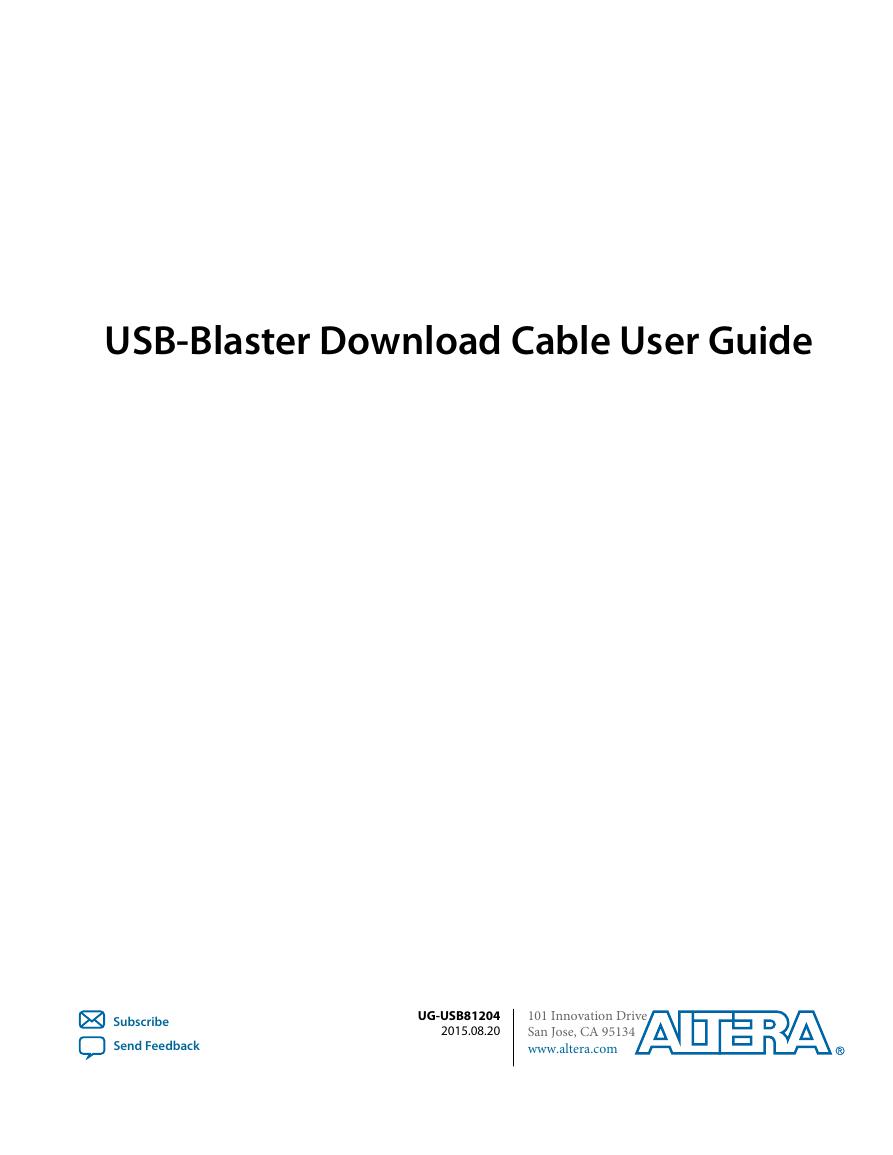















 V2版本原理图(Capacitive-Fingerprint-Reader-Schematic_V2).pdf
V2版本原理图(Capacitive-Fingerprint-Reader-Schematic_V2).pdf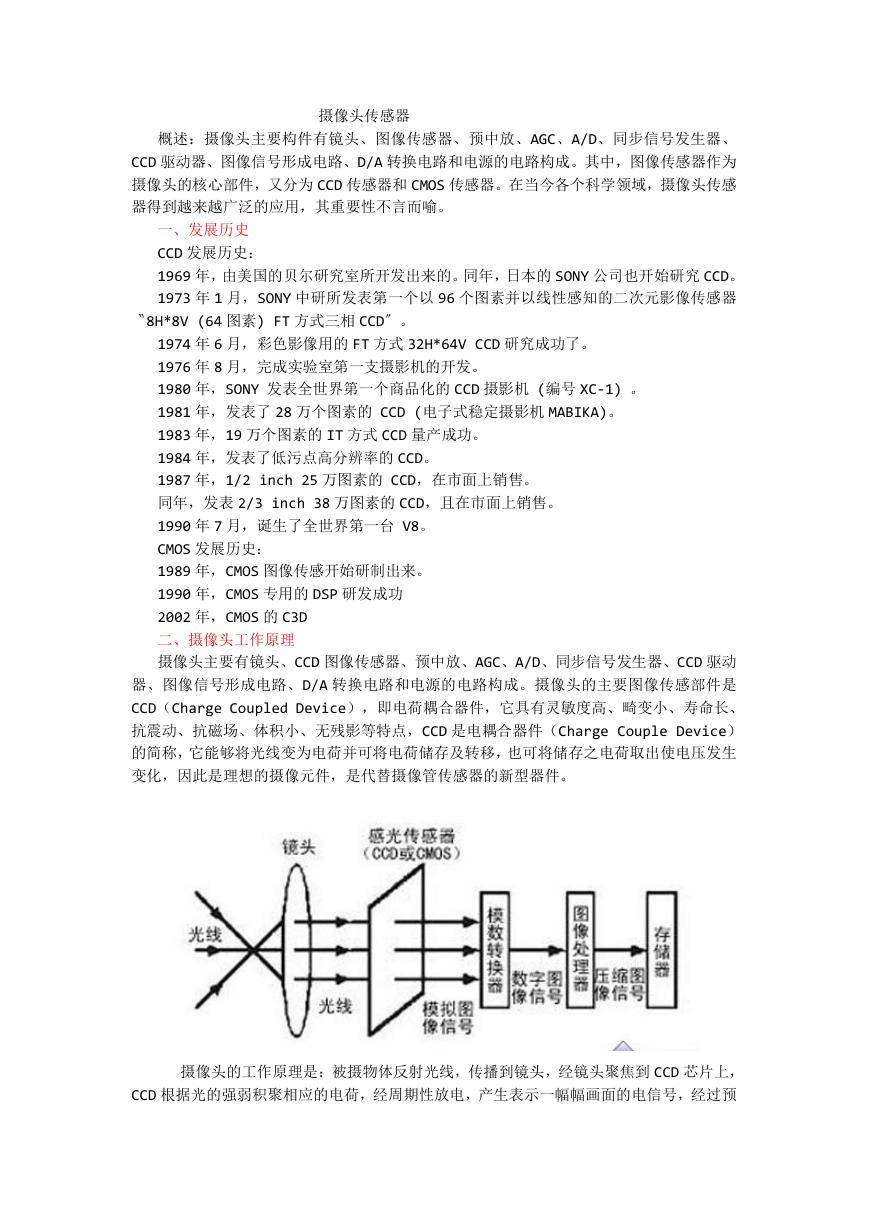 摄像头工作原理.doc
摄像头工作原理.doc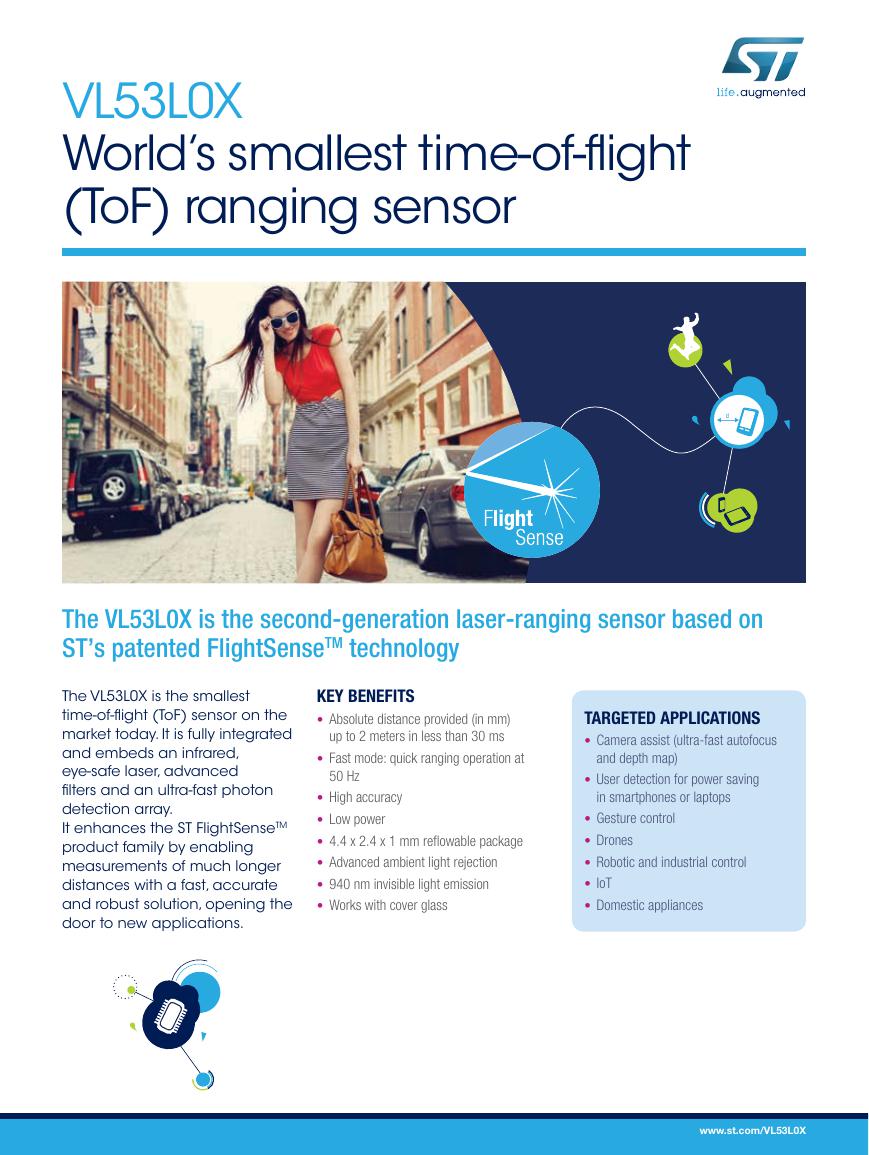 VL53L0X简要说明(En.FLVL53L00216).pdf
VL53L0X简要说明(En.FLVL53L00216).pdf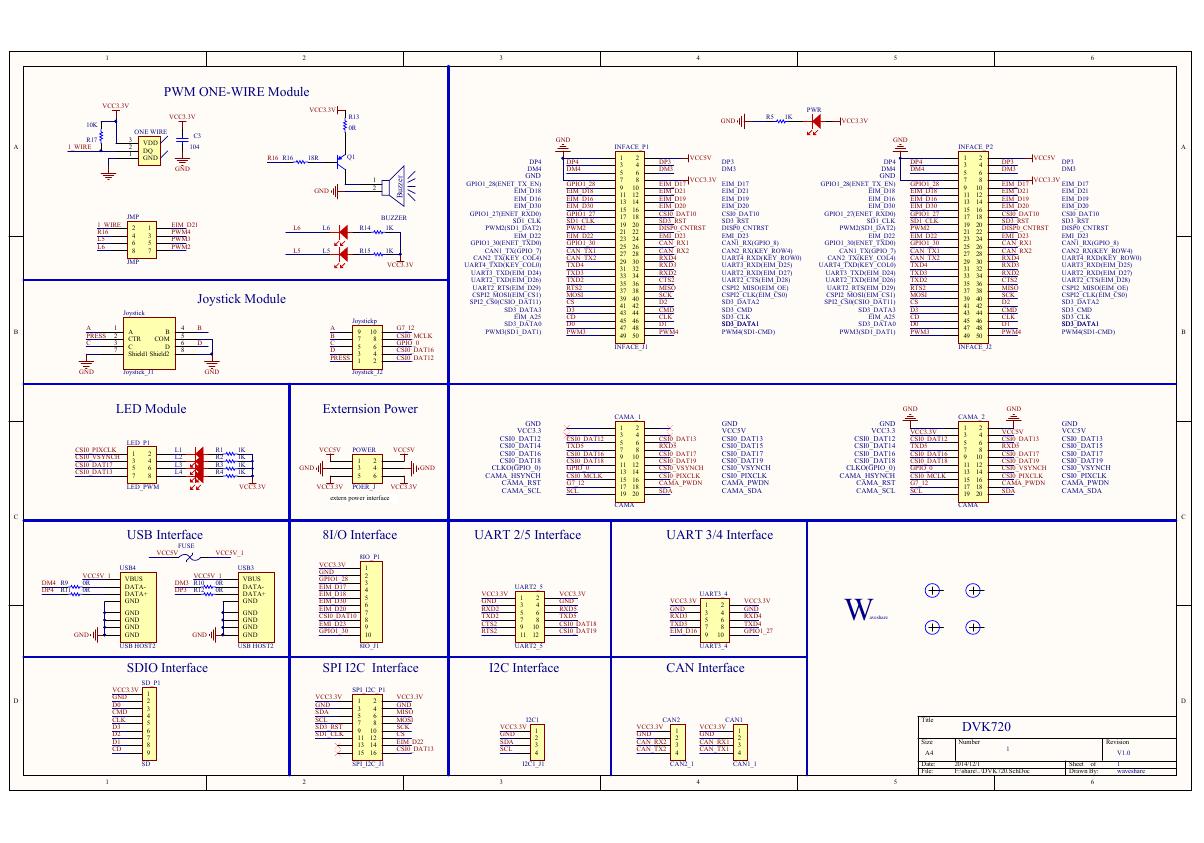 原理图(DVK720-Schematic).pdf
原理图(DVK720-Schematic).pdf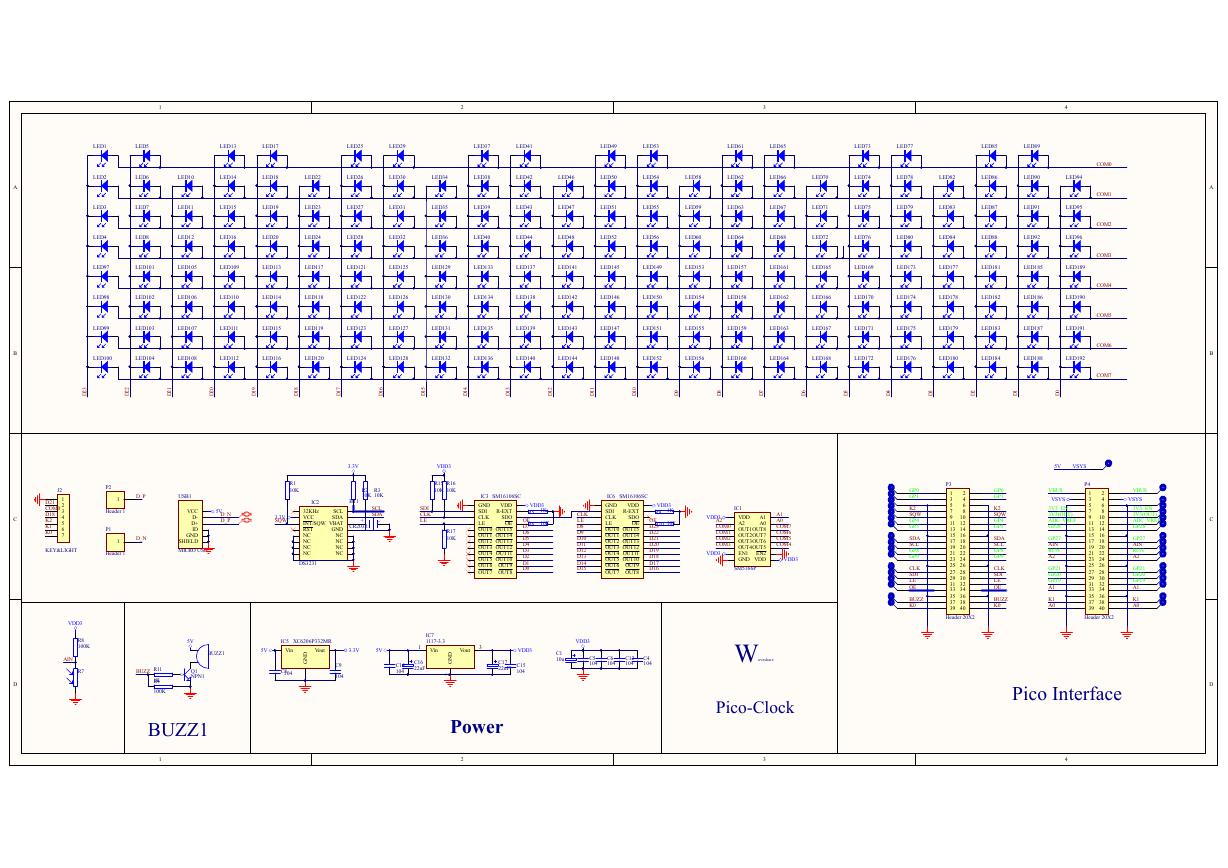 原理图(Pico-Clock-Green-Schdoc).pdf
原理图(Pico-Clock-Green-Schdoc).pdf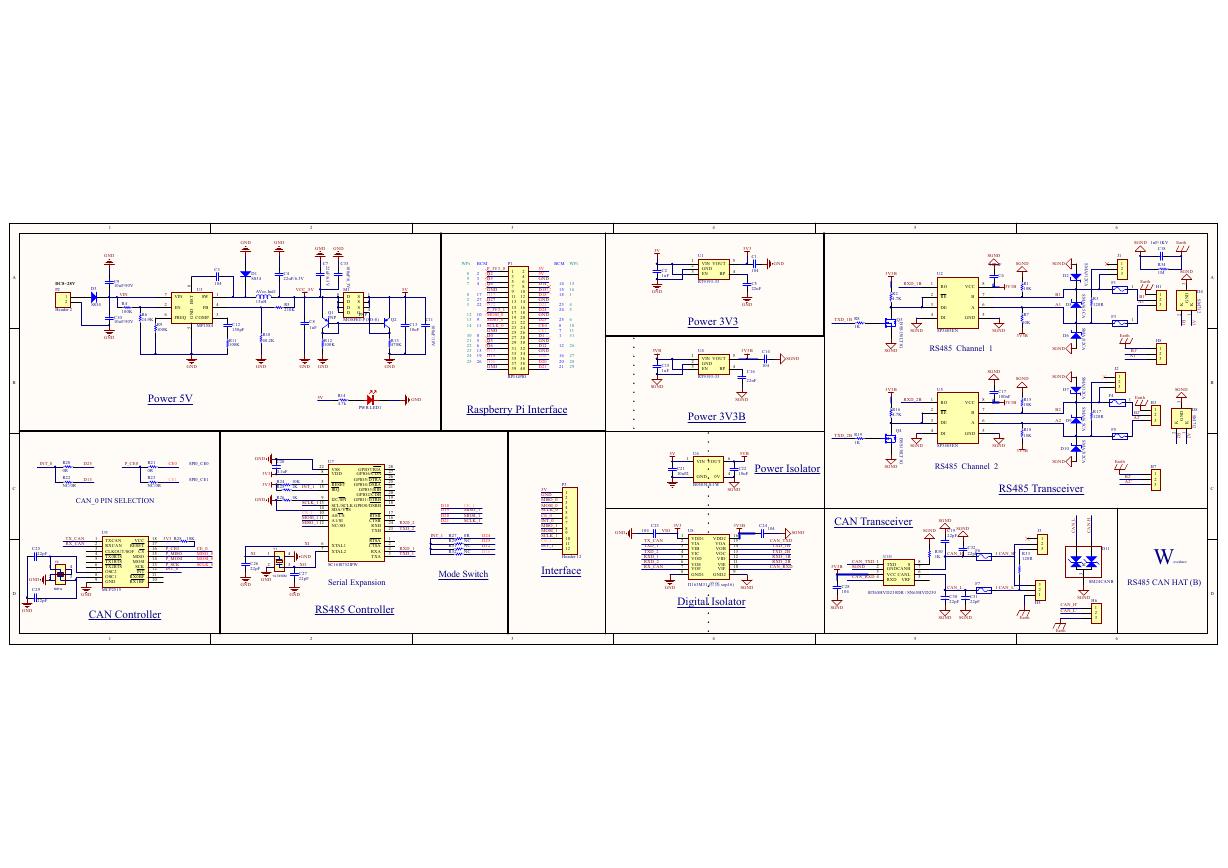 原理图(RS485-CAN-HAT-B-schematic).pdf
原理图(RS485-CAN-HAT-B-schematic).pdf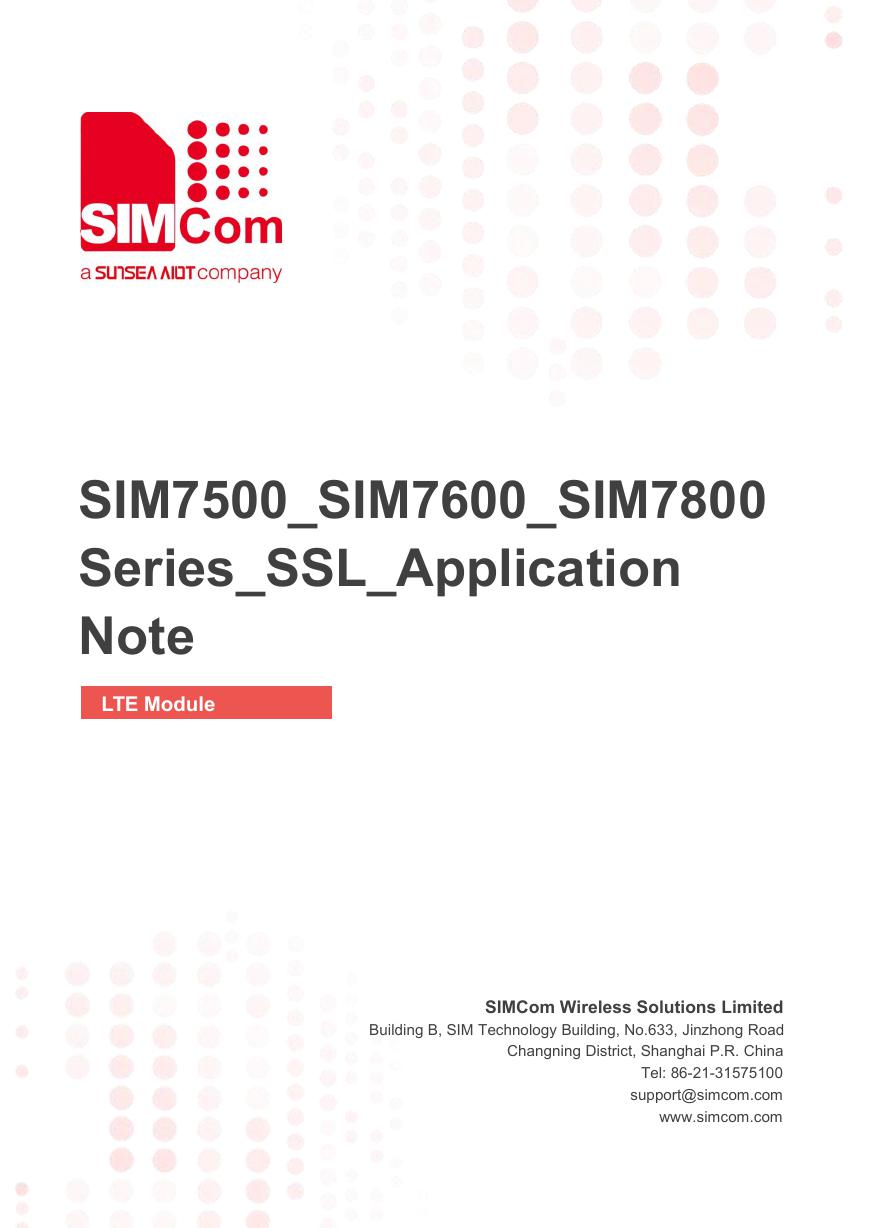 File:SIM7500_SIM7600_SIM7800 Series_SSL_Application Note_V2.00.pdf
File:SIM7500_SIM7600_SIM7800 Series_SSL_Application Note_V2.00.pdf ADS1263(Ads1262).pdf
ADS1263(Ads1262).pdf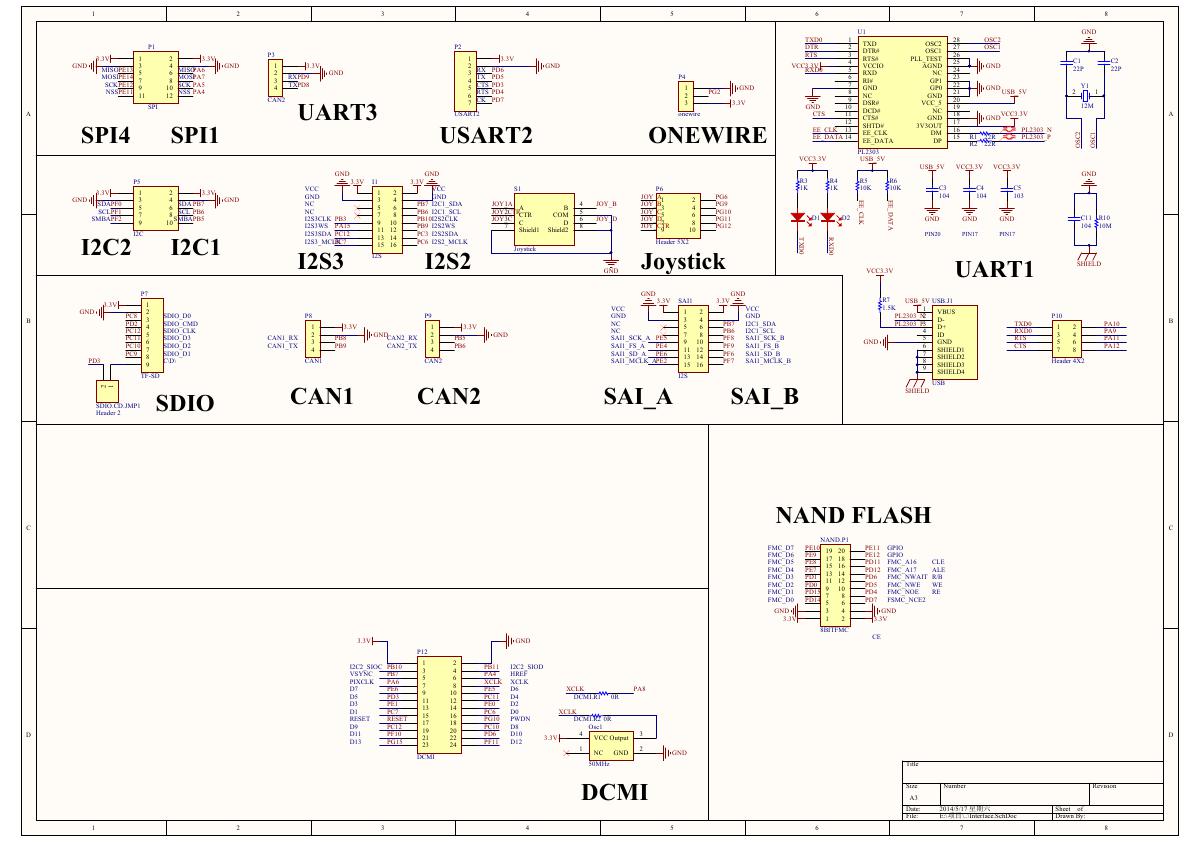 原理图(Open429Z-D-Schematic).pdf
原理图(Open429Z-D-Schematic).pdf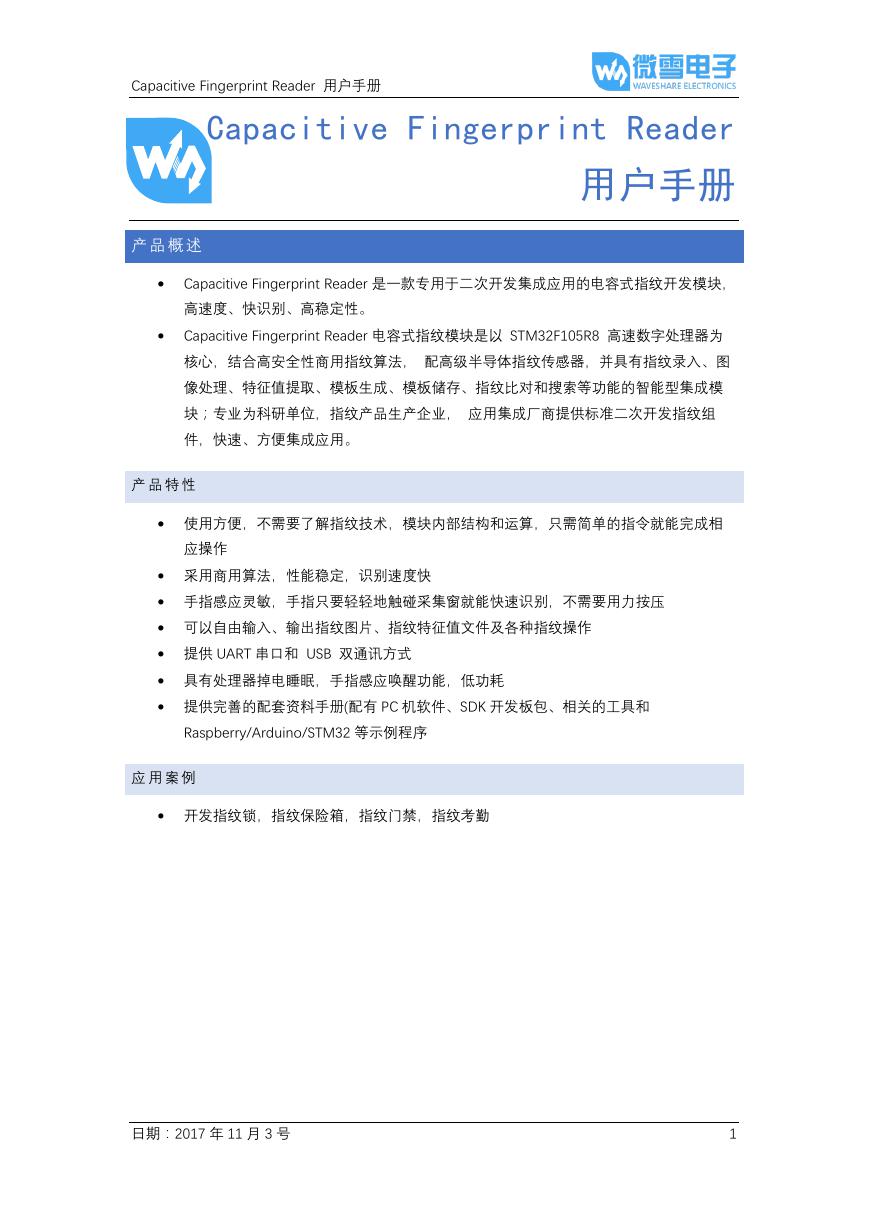 用户手册(Capacitive_Fingerprint_Reader_User_Manual_CN).pdf
用户手册(Capacitive_Fingerprint_Reader_User_Manual_CN).pdf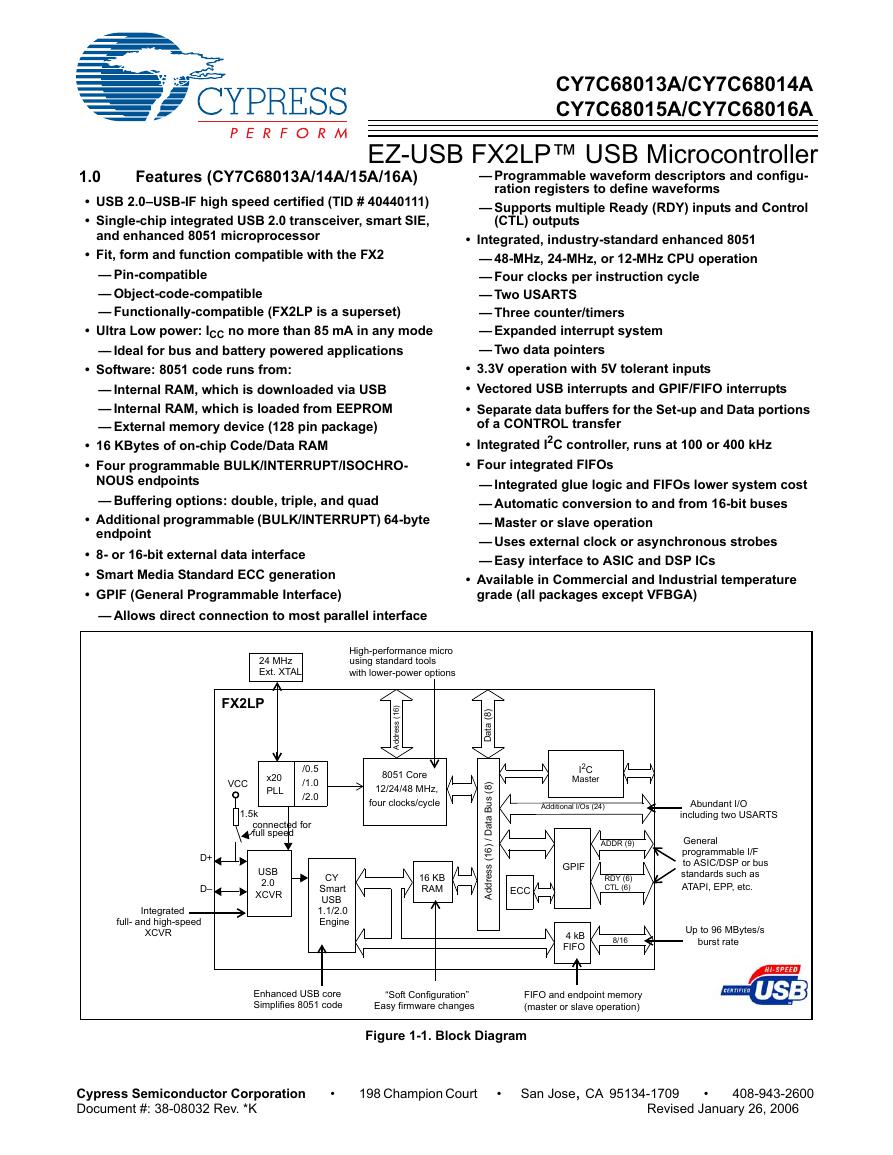 CY7C68013A(英文版)(CY7C68013A).pdf
CY7C68013A(英文版)(CY7C68013A).pdf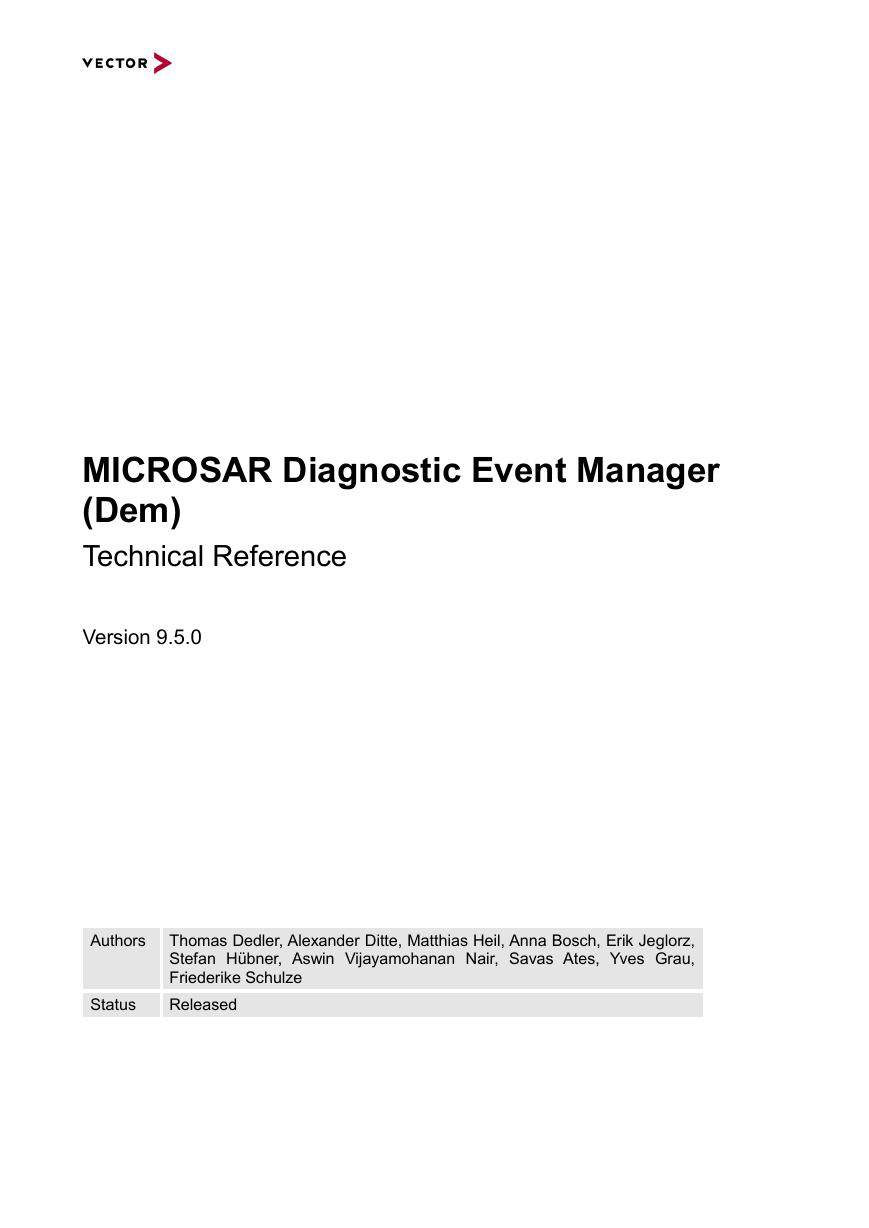 TechnicalReference_Dem.pdf
TechnicalReference_Dem.pdf